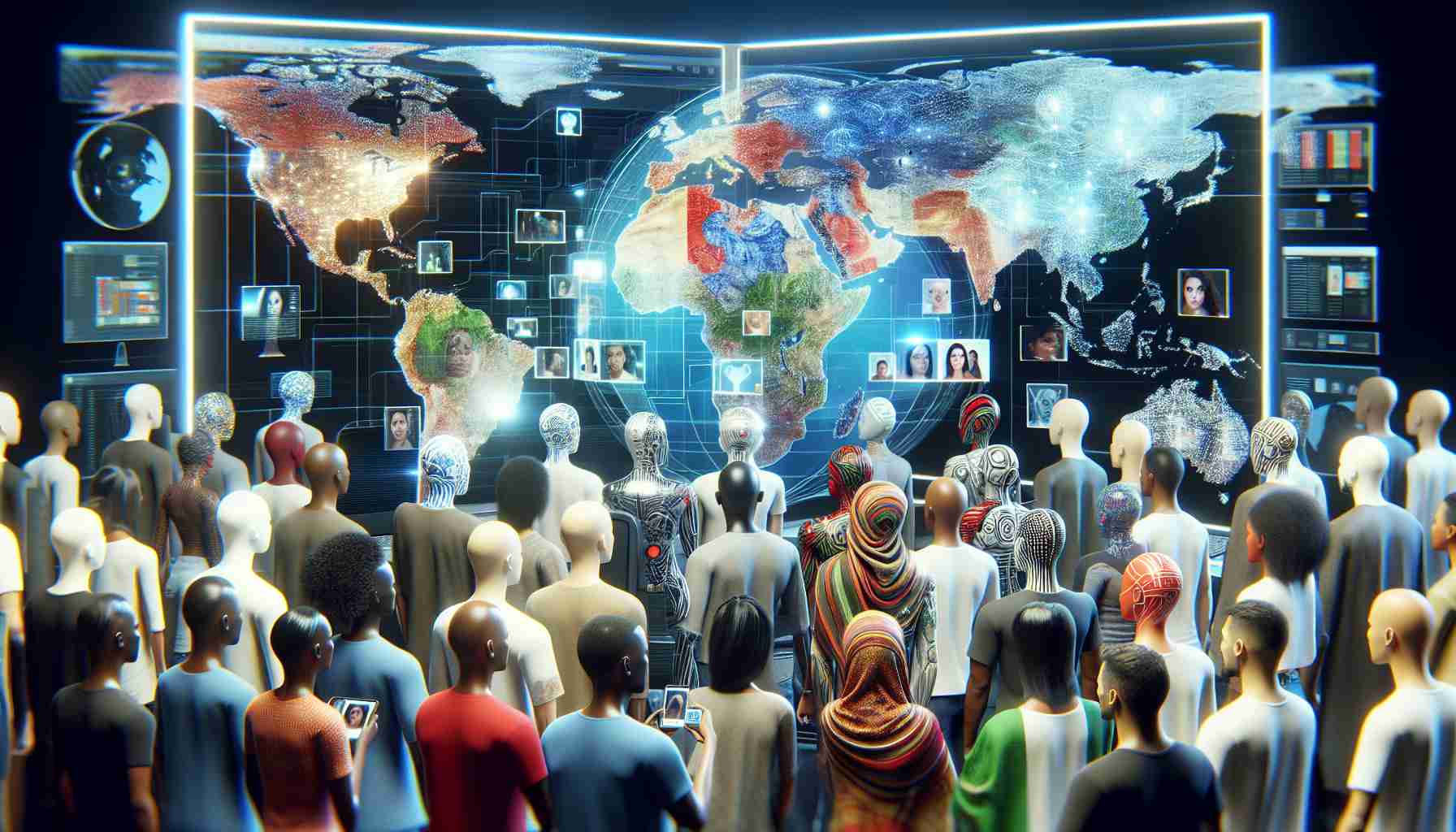In recent years, the rise of artificial intelligence (AI) has brought forth a new phenomenon – AI avatars. These digital creations, often made using stolen images, have become prevalent on social media platforms across the world, captivating audiences with their seemingly real personalities. One such story involves Olga Loiek, a Ukrainian student, who discovered that she was being portrayed as a Russian woman named Natasha or Anna on Chinese social media platforms.
The emergence of these AI avatars raises significant concerns regarding privacy and consent. Loiek, who started a YouTube channel to discuss mental health and her philosophies about life, was shocked to find her image and persona being used without her permission. These avatars, created by companies like HeyGen, use advanced AI technology to generate realistic digital replicas. They can speak fluent Mandarin and promote various messages, such as the close ties between China and Russia, or the desire of Russian women to marry Chinese men.
While some Chinese video platforms have taken steps to label these AI-generated videos, many viewers still believed they were watching real individuals, praising their beauty and welcoming them to China. The implications of this phenomenon are far-reaching, as it not only violates the rights of those portrayed but also has the potential to manipulate public opinion on a global scale. In fact, AI avatars have been used in online disinformation campaigns to spread pro-China and anti-U.S. narratives, raising concerns about the influence of AI technology on economic and security decisions.
This issue highlights the need for regulatory frameworks to address the ethical implications of AI avatars. As technology continues to advance, it is crucial to establish guidelines that protect individuals’ rights and prevent the unauthorized use of their images and identities. Companies like HeyGen should be held accountable for ensuring explicit consent before generating avatars based on real individuals.
As for Olga Loiek, she remains committed to her YouTube channel and calls for stronger regulations on AI. Her story serves as a reminder of the power and potential pitfalls of artificial intelligence. The global community must come together to navigate this new frontier responsibly, ensuring that the benefits of AI can be harnessed while safeguarding individual rights and privacy.
FAQ – AI Avatars and Privacy Concerns
1. What are AI avatars?
AI avatars are digital creations, often made using stolen images, that have realistic appearances and personalities generated through advanced AI technology.
2. How are AI avatars being used on social media platforms?
AI avatars are being used on social media platforms, particularly in China, to promote specific messages or views, such as the close ties between China and Russia or the desire of Russian women to marry Chinese men.
3. What are the concerns regarding AI avatars?
The emergence of AI avatars raises concerns about privacy and consent. Individuals, like Olga Loiek, have discovered that their images and personas are being used without their permission, leading to potential manipulation of public opinion on a global scale.
4. Are viewers able to distinguish AI avatars from real individuals?
While some Chinese video platforms have taken steps to label AI-generated videos, many viewers still believe they are watching real individuals. This raises concerns about the influence of AI technology on economic and security decisions, as AI avatars have been used in online disinformation campaigns.
5. What does Olga Loiek’s story highlight?
Olga Loiek’s story serves as a reminder of the power and potential pitfalls of artificial intelligence. It underscores the need for regulatory frameworks to address the ethical implications of AI avatars and protect individuals’ rights.
Key Terms:
– Artificial Intelligence (AI): The simulation of human intelligence in machines that are programmed to carry out tasks and learn from data.
– AI avatars: Digital creations that mimic real individuals and have realistic appearances and personalities generated through AI technology.
– Privacy: The state of being free from public attention or unwanted intrusion into personal matters.
– Consent: Permission or agreement given willingly, especially in response to a request or proposal.
– Disinformation: False or misleading information spread with the intention to deceive or manipulate public opinion.
Related Links:
1. HeyGen – The company mentioned in the article that creates AI avatars.
2. YouTube – The video-sharing platform where Olga Loiek started her channel to discuss mental health and life philosophies.
3. The Guardian – A news website that covers various topics, including AI and its impact on society.
4. BBC – A renowned news organization that provides comprehensive coverage on AI and its implications.
The source of the article is from the blog meltyfan.es

